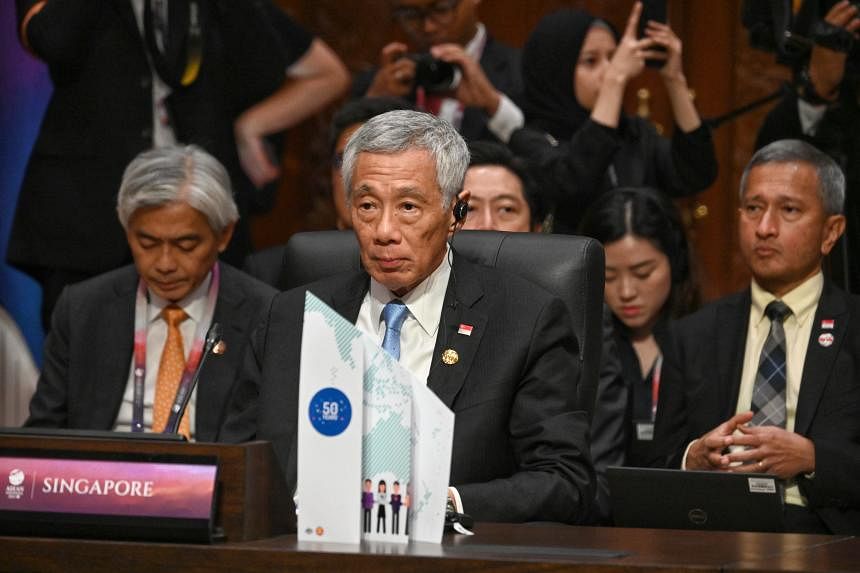JAKARTA - Geopolitical tensions impact South-east Asia, affecting people’s lives and the region’s relationships with its partners, Prime Minister Lee Hsien Loong said on Thursday.
But this challenge is not new, PM Lee added, and Asean will continue efforts to stay open and inclusive, so all external parties have a stake in it and contribute to its stability and development.
He was speaking to leaders from Asean and partner nations, including the United States and China, at the East Asia Summit (EAS), held as part of the 43rd Asean Summit and related meetings in Jakarta.
Rising food, energy and fertiliser prices, as well as limited collaboration in emerging and critical technologies, have resulted from geopolitical tensions that also affect the region, he said.
He added that decoupling supply chains is leading to a more fractured, less prosperous and less peaceful world.
But PM Lee pointed out that such dynamics between big powers are not new and, historically, South-east Asia has been an arena for great power contestation.
“Asean countries have always sought an open and inclusive regional architecture, where countries have overlapping circles of friends, and where all external partners, including the major powers, have a stake in, and contribute to, regional stability and development,” he said.
It is for this reason that Asean took the lead to establish regional mechanisms like the EAS and the Asean Regional Forum, said PM Lee.
He highlighted how the EAS is the only forum in the region that brings together leaders of all the key powers, thus making it an important contributor to regional stability.
The EAS comprises Asean countries and eight partners: Australia, China, India, Japan, South Korea, New Zealand, Russia and the US.
But global tensions have affected EAS cooperation, said PM Lee.
“In troubled times, it is all the more important that we find common ground and project a credible, collective voice,” he added.
He said that the Asean Outlook on the Indo-Pacific (AOIP) provides a platform to build on the EAS, underscoring how the initiative is “omnidirectional and inclusive”.
The AOIP lays out the bloc’s common position on regional cooperation, security and prosperity, as well as its stance on not taking sides with any major power competing for influence in the region.
PM Lee held up the good progress of the initiative made under Indonesia’s chairmanship, and said that almost all EAS partners have committed themselves to the AOIP through joint statements with Asean.
He called for further efforts, including for a collective EAS statement reaffirming the AOIP and Asean centrality.
In a separate meeting Asean leaders had with Indian Prime Minister Narendra Modi, PM Lee said that India and the bloc should collaborate in emerging areas, including deploying renewable and low-carbon energy to address climate change.
Both sides should also prepare for future public health emergencies through research and vaccine distribution, he added.
PM Lee also touched on the need to strengthen supply chain resilience and food security to address likely shocks to come.
Other additional areas of cooperation between Asean and India include the digital economy – particularly digital finance – and cyber security.
In a separate meeting between Asean leaders and Australian Prime Minister Anthony Albanese, PM Lee said that the bloc hoped to work with Australia in the digital economy, as Australia is a forerunner in this field.
He called on both sides to enhance regional capacity-building initiatives in cyber security and strengthen cooperation in fields such as artificial intelligence and digital trade.
Asean-Australia integration efforts would not be complete without strengthening food security, and PM Lee noted that the war in Ukraine and adverse weather events caused by climate change have disrupted agricultural production and food value chains.
Singapore welcomed the Asean-Australia joint leaders’ statement on food security, said PM Lee.
“It reaffirms our commitment to the unimpeded trade and flow of food products, and to building more resilient and sustainable agri-food systems.”
PM Lee returned to Singapore on Thursday evening.


